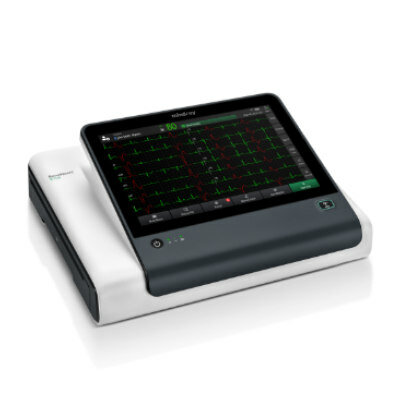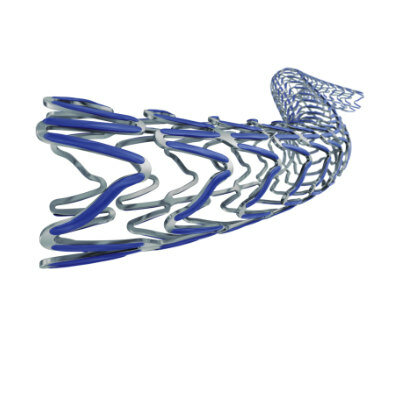Seattle Hospital Network Shifts Away from Overlapping Surgeries
|
By HospiMedica International staff writers Posted on 22 Aug 2017 |

Image: The Swedish Health First Hill Medical pavilion (Photo courtesy of Swedish Health).
Healthcare provider Swedish Health (Seattle, WA, USA) has announced plans to significantly curtail the current practice of overlapping surgeries in their hospitals.
The updated policy changes were developed collaboratively with surgeons, anesthesiologists, charge nurses, and other caregivers, following several months of bad publicity and heightened regulatory scrutiny of the practice. Surgeons at Swedish Health run facilities must now be in the operating room (OR) for the substantial majority of all procedures, with limited clearance to step away during more mundane tasks at the beginning and end, such as closing the surgical incision.
The revised guidelines were announced by R. Guy Hudson, MD, CEO of Swedish Health Services, who also noted there was no indication that the previous policy, which allowed for overlapping surgeries, was compromising patient care. Dr. Hudson was elevated to CEO when previous CEO Tony Armada resigned the post in February 2017, following an investigation by the Seattle Times (WA, USA) of the high prevalence of overlapping surgeries in the neuroscience unit of Cherry Hill, a hospital operated by Swedish. The newspaper article spurred an investigation by the U.S. Attorney’s office.
Johnny Delashaw, MD, who was a that time the chair of the Swedish Neuroscience Institute, also faced significant repercussions following the Seattle Times article. Marked as the driving force behind the extensive adoption of overlapping surgeries, Dr. Delashaw has since exited the hospital and had his state medical license suspended. He has appealed the suspension, maintaining complaints against him were inspired by staff members harboring personal grievances.
“We have established more specific parameters around attending surgeon presence during surgical procedures. We have also enhanced monitoring, centralized scheduling, and revised patient-consent communications,” announced Swedish Health in a press release. “This is an important step in a series of enhancements that will continue Swedish's focus on improving the overall patient experience.”
Swedish Health operates five hospitals and multiple other facilities in and around Seattle (WA, USA), making them the metropolitan area’s largest nonprofit provider of health services.
Related Links:
Swedish Health
Seattle Times
The updated policy changes were developed collaboratively with surgeons, anesthesiologists, charge nurses, and other caregivers, following several months of bad publicity and heightened regulatory scrutiny of the practice. Surgeons at Swedish Health run facilities must now be in the operating room (OR) for the substantial majority of all procedures, with limited clearance to step away during more mundane tasks at the beginning and end, such as closing the surgical incision.
The revised guidelines were announced by R. Guy Hudson, MD, CEO of Swedish Health Services, who also noted there was no indication that the previous policy, which allowed for overlapping surgeries, was compromising patient care. Dr. Hudson was elevated to CEO when previous CEO Tony Armada resigned the post in February 2017, following an investigation by the Seattle Times (WA, USA) of the high prevalence of overlapping surgeries in the neuroscience unit of Cherry Hill, a hospital operated by Swedish. The newspaper article spurred an investigation by the U.S. Attorney’s office.
Johnny Delashaw, MD, who was a that time the chair of the Swedish Neuroscience Institute, also faced significant repercussions following the Seattle Times article. Marked as the driving force behind the extensive adoption of overlapping surgeries, Dr. Delashaw has since exited the hospital and had his state medical license suspended. He has appealed the suspension, maintaining complaints against him were inspired by staff members harboring personal grievances.
“We have established more specific parameters around attending surgeon presence during surgical procedures. We have also enhanced monitoring, centralized scheduling, and revised patient-consent communications,” announced Swedish Health in a press release. “This is an important step in a series of enhancements that will continue Swedish's focus on improving the overall patient experience.”
Swedish Health operates five hospitals and multiple other facilities in and around Seattle (WA, USA), making them the metropolitan area’s largest nonprofit provider of health services.
Related Links:
Swedish Health
Seattle Times
Latest Hospital News News
- Nurse Tracking System Improves Hospital Workflow
- New Children’s Hospital Transforms California Healthcare
- Noisy Hospitals Face Threat of Decreased Federal Compensation
- Orthopedics Centre of Excellence Planned for Guy’s Hospital
- Research Suggests Avoidance of Low-Value Surgical Procedures
- U.S. Federal Readmission Fines Linked to Higher Mortality
- Columbia China to Build New Hospital in Jiaxing
- Dubai Debuts Second Robotic Pharmacy Service
- ACC to Launch Valvular Heart Disease Program in China
- Mortality Rates Lower at Major Teaching Hospitals
- South Australia to Inaugurate Upscale Hospital
- Raffles to Launch Second Hospital Project in China
- Research Center Tackles Antimicrobial Drugs Challenge
- Miami Cardiac & Vascular Institute Completes Expansion Project
- Hospital Antibiotic Policies Improve Prescription Practices
- USC Virtual Care Clinic to Employ Avatar Doctors
Channels
Critical Care
view channel
Ingestible Smart Capsule for Chemical Sensing in the Gut Moves Closer to Market
Intestinal gases are associated with several health conditions, including colon cancer, irritable bowel syndrome, and inflammatory bowel disease, and they have the potential to serve as crucial biomarkers... Read moreNovel Cannula Delivery System Enables Targeted Delivery of Imaging Agents and Drugs
Multiphoton microscopy has become an invaluable tool in neuroscience, allowing researchers to observe brain activity in real time with high-resolution imaging. A crucial aspect of many multiphoton microscopy... Read more
Novel Intrabronchial Method Delivers Cell Therapies in Critically Ill Patients on External Lung Support
Until now, administering cell therapies to patients on extracorporeal membrane oxygenation (ECMO)—a life-support system typically used for severe lung failure—has been nearly impossible.... Read moreSurgical Techniques
view channel
Pioneering Sutureless Coronary Bypass Technology to Eliminate Open-Chest Procedures
In patients with coronary artery disease, certain blood vessels may be narrowed or blocked, requiring a stent or a bypass (also known as diversion) to restore blood flow to the heart. Bypass surgeries... Read more
Intravascular Imaging for Guiding Stent Implantation Ensures Safer Stenting Procedures
Patients diagnosed with coronary artery disease, which is caused by plaque accumulation within the arteries leading to chest pain, shortness of breath, and potential heart attacks, frequently undergo percutaneous... Read more
World's First AI Surgical Guidance Platform Allows Surgeons to Measure Success in Real-Time
Surgeons have always faced challenges in measuring their progress toward surgical goals during procedures. Traditionally, obtaining measurements required stepping out of the sterile environment to perform... Read morePatient Care
view channel
Portable Biosensor Platform to Reduce Hospital-Acquired Infections
Approximately 4 million patients in the European Union acquire healthcare-associated infections (HAIs) or nosocomial infections each year, with around 37,000 deaths directly resulting from these infections,... Read moreFirst-Of-Its-Kind Portable Germicidal Light Technology Disinfects High-Touch Clinical Surfaces in Seconds
Reducing healthcare-acquired infections (HAIs) remains a pressing issue within global healthcare systems. In the United States alone, 1.7 million patients contract HAIs annually, leading to approximately... Read more
Surgical Capacity Optimization Solution Helps Hospitals Boost OR Utilization
An innovative solution has the capability to transform surgical capacity utilization by targeting the root cause of surgical block time inefficiencies. Fujitsu Limited’s (Tokyo, Japan) Surgical Capacity... Read more
Game-Changing Innovation in Surgical Instrument Sterilization Significantly Improves OR Throughput
A groundbreaking innovation enables hospitals to significantly improve instrument processing time and throughput in operating rooms (ORs) and sterile processing departments. Turbett Surgical, Inc.... Read moreHealth IT
view channel
Printable Molecule-Selective Nanoparticles Enable Mass Production of Wearable Biosensors
The future of medicine is likely to focus on the personalization of healthcare—understanding exactly what an individual requires and delivering the appropriate combination of nutrients, metabolites, and... Read more
Smartwatches Could Detect Congestive Heart Failure
Diagnosing congestive heart failure (CHF) typically requires expensive and time-consuming imaging techniques like echocardiography, also known as cardiac ultrasound. Previously, detecting CHF by analyzing... Read moreBusiness
view channel
Expanded Collaboration to Transform OR Technology Through AI and Automation
The expansion of an existing collaboration between three leading companies aims to develop artificial intelligence (AI)-driven solutions for smart operating rooms with sophisticated monitoring and automation.... Read more

















